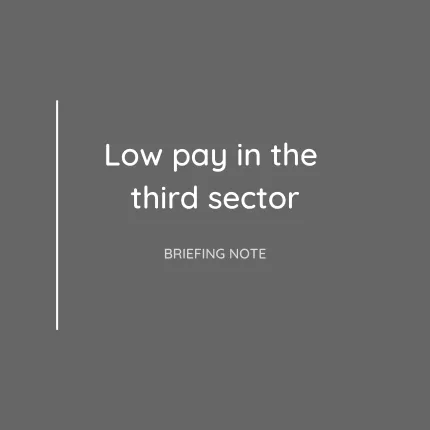Low Pay In The Third Sector Research Briefing
Covid-19 provided a pertinent reminder of the critical role played by the UK third sector. In financial terms, the pandemic was a perfect storm for low income households, with many facing cuts to income while costs went through the roof. As households struggled for essentials, it was often third sector organisations that stepped in to provide the goods, from food parcels to home-schooling equipment and everything in between. Unbeknownst to many, the financial climate of charities - who make up a significant proportion of the third sector - often mirrored the households they were helping. 63 per cent of charities reported an upsurge in demand during Covid-19, resulting in increased costs and a higher workload. Concurrently, the sector also experienced widespread financial losses, with numerous funding streams slowing down, such as individual giving, or closing completely - such as charity retail or fundraising events. Consequently, in January 2021, 83 per cent of charities projected a decline in income for the next 12 months, and 69 per cent said it would take more than a year to return to pre crisis income levels. As is often the case, when sections of the economy struggle, it usually impacts low paid workers disproportionately. The third sector is no different. As outlined in this report, around a fifth (17 percent) of all third sector workers earn less than the real Living Wage. This compares with 26 per cent in the private sector and 6 per cent in the public sector. It is these workers - particularly those in the private and third sectors - who are more likely to have lost work or income due to being furloughed throughout the pandemic, while those on better pay have typically fared better. As the sector re-orients to life after lockdown, it is critical that workers in the sector, who have done so much to ensure families aren't without essentials, don't have to forgo those essentials themselves. These workers need a real Living Wage.

